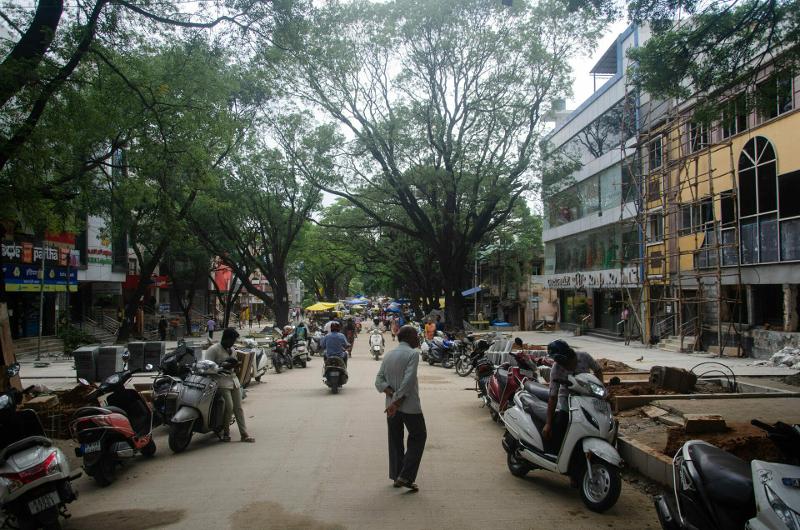Welcome to an insightful exploration of the crucial role of public participation in urban planning. In this article, we delve into the views of urban planning experts and examine the absence of a comprehensive urban planning process in Bengaluru. Through thought-provoking case studies, we shed light on the need for a robust framework that promotes transparency, accountability, and inclusivity in shaping the future of our cities.
The Absence of a Comprehensive Urban Planning Process
Explore the reasons behind the lack of a legal framework for urban planning in Bengaluru.
Bengaluru, the bustling metropolis, faces a significant challenge in the absence of a comprehensive urban planning process. The current urban governance system in the city is fragmented, with different agencies holding power over various aspects of development. This lack of a clear framework for organized work hampers effective urban planning and decision-making.
Case studies from Bengaluru highlight the need for a robust legal and institutional structure to guide urban planning. The experiences of projects such as VV Puram and Gandhi Bazaar underscore the negative consequences of inadequate planning, including halted businesses and disruptions to livelihoods.
The Need for Public Participation in Urban Planning
Discover the significance of involving the public in the urban planning process.
Public participation plays a crucial role in shaping cities that are inclusive, sustainable, and responsive to the needs of the community. By involving citizens in the decision-making process, urban planning can benefit from diverse perspectives and ensure that the outcomes reflect the aspirations of the people.
However, the current urban planning practices in Bengaluru lack a structured approach to public participation. This hampers transparency and accountability, often leading to decisions that do not align with the needs and aspirations of the residents.
Challenges in Implementing Effective Urban Planning
Examine the challenges faced in implementing effective urban planning measures.
Implementing effective urban planning measures comes with its own set of challenges. In Bengaluru, the lack of a clear legal framework and institutional structure poses hurdles in translating plans into action. The absence of accountability mechanisms and performance-based contracts further complicate the implementation process.
Additionally, the disconnect between existing regulations and the reality of urban spaces in Bengaluru contributes to the violation of planning guidelines. The enforcement of regulations becomes sporadic, leading to a culture of informality and illegality.
The Role of Local Governments in Urban Planning
Understand the role of local governments and elected representatives in the urban planning process.
The 74th Amendment of the Constitution empowered local governments, including municipal corporations and municipalities, with planning functions. However, in practice, these local governments in Bengaluru have limited involvement in the planning process.
The Bangalore Development Authority (BDA), a bureaucratic agency, has taken on the planning powers, while elected representatives and local councillors have a minimal role. The establishment of Metropolitan Planning Committees (MPCs) and District Planning Committees (DPCs), as envisioned in the 74th Amendment, remains largely unimplemented.
It is crucial to recognize the importance of empowering local governments and involving elected representatives in the urban planning process. This would ensure that planning decisions are informed by the ground realities and aspirations of the local communities.
Conclusion
Urban planning in Bengaluru faces significant challenges due to the absence of a comprehensive legal framework and institutional structure. The fragmented governance system, lack of public participation, and disconnect between regulations and ground realities hinder the effective implementation of urban planning measures.
To address these challenges, there is a need for a clear and inclusive urban planning process that involves the public, empowers local governments, and establishes accountability mechanisms. By embracing transparency, adaptability, and sustainability, Bengaluru can unlock its full potential and shape a vibrant and equitable city for its residents.
FQA
What are the consequences of inadequate urban planning?
Inadequate urban planning can lead to halted businesses, disruptions to livelihoods, and a lack of infrastructure that meets the needs of the community. It can also contribute to congestion, environmental degradation, and social inequities.
How can public participation improve urban planning?
Public participation ensures that urban planning decisions are informed by diverse perspectives and reflect the aspirations of the community. It enhances transparency, accountability, and the overall quality of urban development.
What role do local governments play in urban planning?
Local governments, including municipal corporations and municipalities, have a crucial role in urban planning. They are empowered by the 74th Amendment of the Constitution to plan for their local areas and contribute to the overall planning of larger regions.
What can be done to address the challenges in urban planning implementation?
Addressing the challenges in urban planning implementation requires a comprehensive approach. This includes establishing a clear legal framework, empowering local governments, promoting public participation, enhancing accountability mechanisms, and aligning regulations with ground realities.

